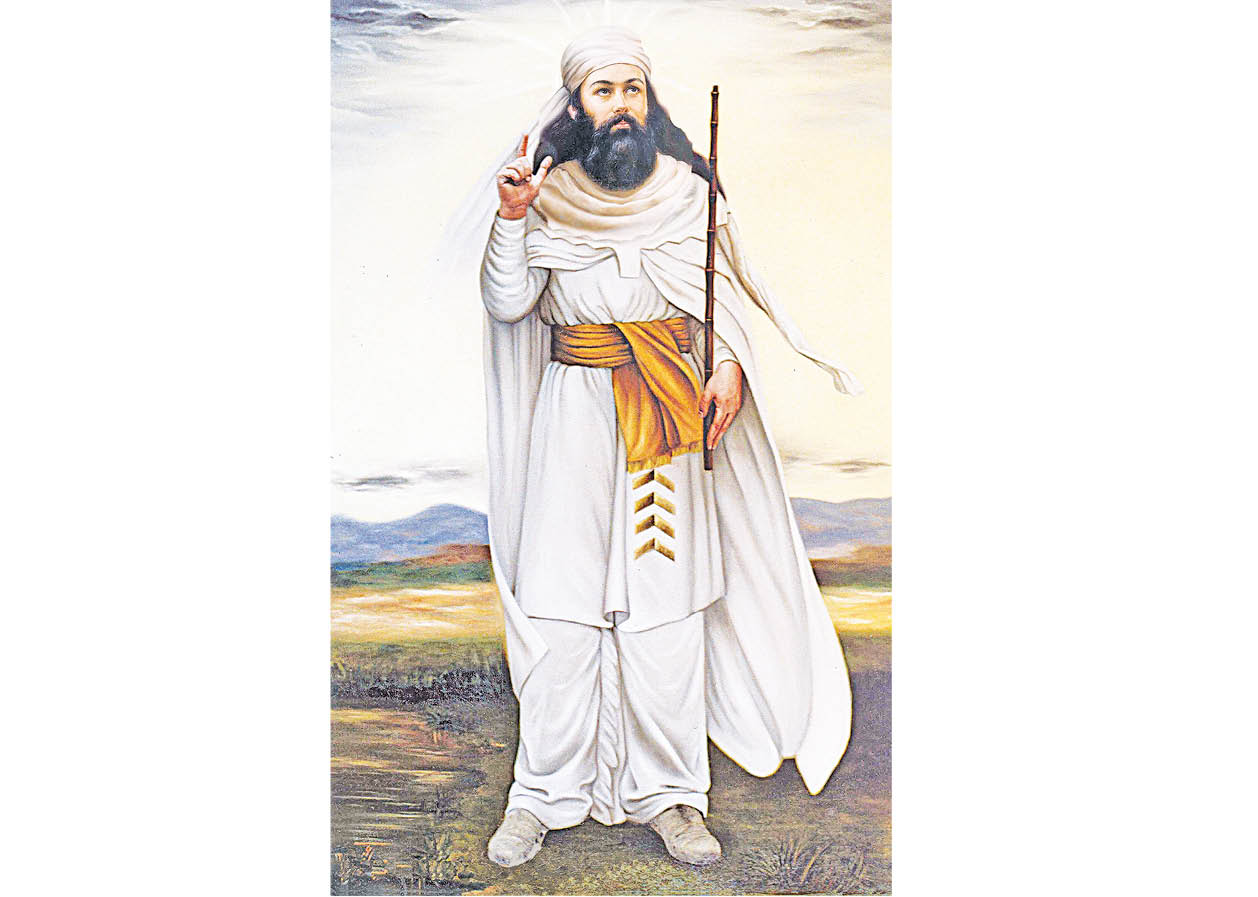The following excerpt shares Zarathushtra explaining the meaning and significance of the omnipotent, ‘Yatha Ahu Vairyo’ prayer.
The heart and the core of the Ahunavar or the Yatha Ahu Vairyo prayer is Spitama Zarathushtra, for His life is the living expression of this prayer, which centers around eternal truth, love and service to mankind. Zarathushtra personified righteousness and lived only as the Lord required and that is for the uplift and welfare of God’s creation. Therefore it is possible God may have had him in mind when He wove the words of this ancient prayer.
Taking this line of thought further, we look again at the three sets of meaning in the ‘Yatha’.
- A righteous man (Ahu) is the equal of a King (Ratu) who is God’s anointed, which brings us to the thought, only in One is both (Spiritual and Temporal) embodied, and that is in our Lord Ahura Mazda.
- God’s bounty will surely be his, who is wholly righteous and spends his life helping the weak and the meek, in other words, who lives for God.
- The highest reward for service to mankind will be the strength or power granted to you for still greater service.
These are God’s Truth and repeating them, is to show belief in His Truth. Therefore, calling out the prayer, ‘Yatha’ implies: “0 God, my Lord Ahura Mazda, I fervently believe in You and will faithfully honour the truth proclaimed by You my God.’
The literal translation of the ‘Yatha Ahu Vairyo’ prayer:
As Lord’s Temporal work their will on Earth,
So by their gathered ASHOI Teachers WISE
The gifts of VOHU-MAN come as reward
For deeds done out of LOVE for Lord of Life;
Ahura’s XSHATHRA surely cometh down
On him who SERVES with zeal his brothers meek.
Explains Zoroaster:
“Nothing can draw God’s love and protection more than one’s faith and fervent belief in Him. In the eyes of the Lord, the righteous man is the equal of a King and so is God’s representative on Earth. The one who guides and helps others on to the path of righteousness will receive the Lord’s bounty, (Vohu Manu). His very love and strength goes to those who succour the poor and the weak—the meek and the lowly.
A selfish and greedy man denies himself God’s grace and shuts himself into oblivion and unhappiness. If you wish to be happy, then do not fail to see that others around you are happy. Share your knowledge and your art with others and the world will be a better place to live in. Those are the ones who guide and help others along its path, for the Lord’s gift of Vohu-manu (Good Mind) is granted to those who serve His cause and purpose in this life. His very love and strength goes to those who help the poor and the weak, the meek and the lowly.
For those of you who hear me now, it is well to remember that if you wish to be happy, then do not fail to see that those who are around you are happy. After all, if you are possessed of wealth, money by itself will only corrupt you and become your master; but if you disperse its strength around you, creating happiness in others, whose lot is not as fortunate as yours, God’s bounty will surely await you. For, in this reckoning, we are only trustees of what we possess and should be willing to share our gifts with others.
A selfish and greedy man denies to himself God’s grace and shuts himself into oblivion and unhappiness. Share your knowledge and your art with others and the world will be a better place to live in. For the greatest wealth you can possess are the smiling faces you can have around you, for wealth is only a sense of well-being and is all the more enhanced through participation by many.
In this world of joy and sorrow, if man will not show man sympathy, kindness and affection, life’s heavy burden can become unbearable. Only when aided by those more fortunate, and by living in fellowship with one another, sharing the other’s burden, can its crushing weight be relieved. You should understand that life is incomplete when man lives for himself alone, oblivious of the happiness of others. Life is best only when lived with and for others; one should seek happiness in the happiness of all.”
- દિકરી એટલે બીજી માં… - 20 April2024
- નાગપુરની બાઈ હીરાબાઈ એમ. મુલાનદરેમહેરનો ઇતિહાસ - 20 April2024
- વિશ્વ ભારતી સંસ્થાન દ્વારા રતિ વાડિયાનુંસન્માન કરવામાં આવ્યું - 20 April2024

V.powerful prayer,sounds are amazing full of positive vibrations.ahura mazda is bountiful